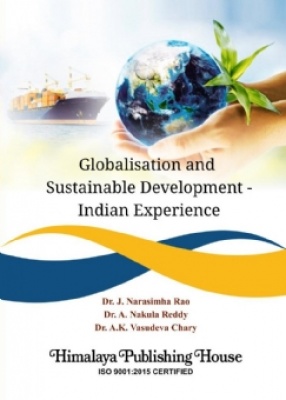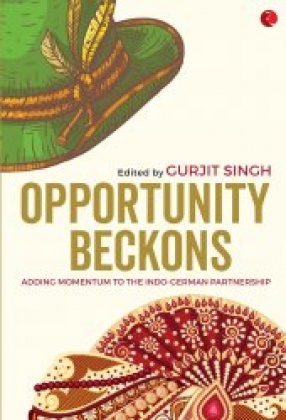Globalisation and Sustainable Development: Indian Experience
Globalisation is an economic tidal wave that is sweeping over the world in no hope of stopping as it cannot be stopped from all indications. People around the globe are more connected to each other than ever before. Information and money flow more quickly than ever. Global manufacturing goods and services produced in one part of the world are increasingly available in all parts of the world. International travel is more frequent and international communication is commonplace. It is the connecting chain of domestic economies, industries, cultures and government policies around the world. This integration has occurred through increases in the technological capabilities and efficiency of world trade, communication and transportation. Primarily, globalisation refers to the economic integration of the global markets, but it is also used to describe the socio-cultural integration that has been brought on by the rise of the Internet. World governments now focus on decreasing barriers to trade and actively promote international commerce in relation to investments, goods and services. International contacts and exchanges are no way new to the world. It dates back to the time of the Mercantilists who were popular from the sixteenth to the middle of the eighteenth century. They traversed the whole world looking for precious metals; in the process, partitioned and colonised all parts of the world. Even in the Classical era, exchange of goods and services was promoted through the law of comparative advantage. This was made possible by the existence of comparative advantage, i.e., a situation in which one country has a comparative cost advantage in the production of one commodity over another country. In addition, in the twentieth century, the Neo-classicists also saw the possibility of trade and exchanges among countries. This was made possible because various countries were endowed with different proportions of factors of production. Therefore, countries were encouraged to produce and exports commodities in which they have abundant supply of factors of production. Hence, globalisation dates back to human history. This was carried out in the form of trade, exchanges, inter-country movements, travels and migration. The world economy has become highly dynamic and has acquired an unprecedented growth potential. Developments in technology, financial, information technology and other fields have created vast opportunities for generating economic growth and benefits.
Get it now and save 10%
BECOME A MEMBER







Bibliographic information